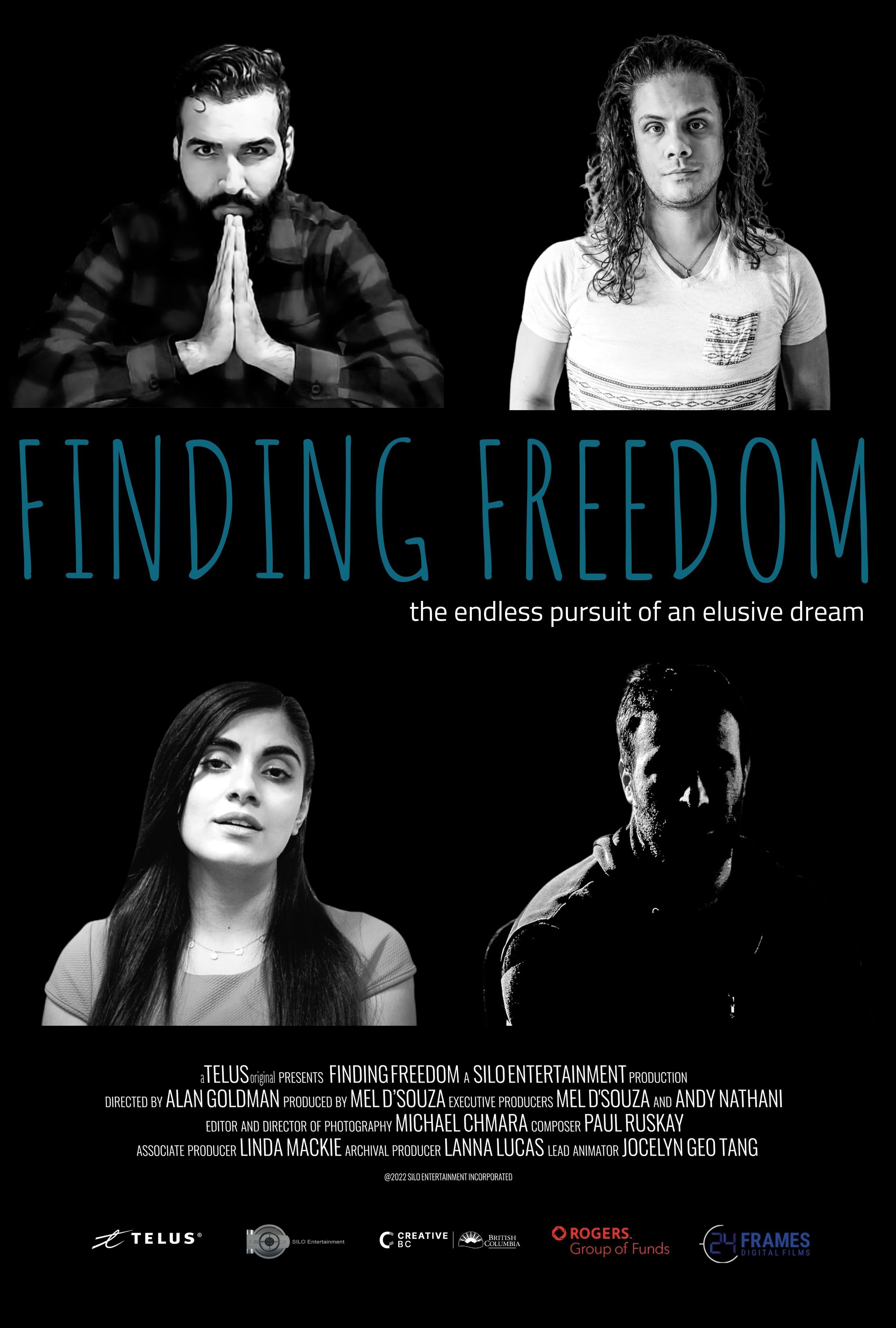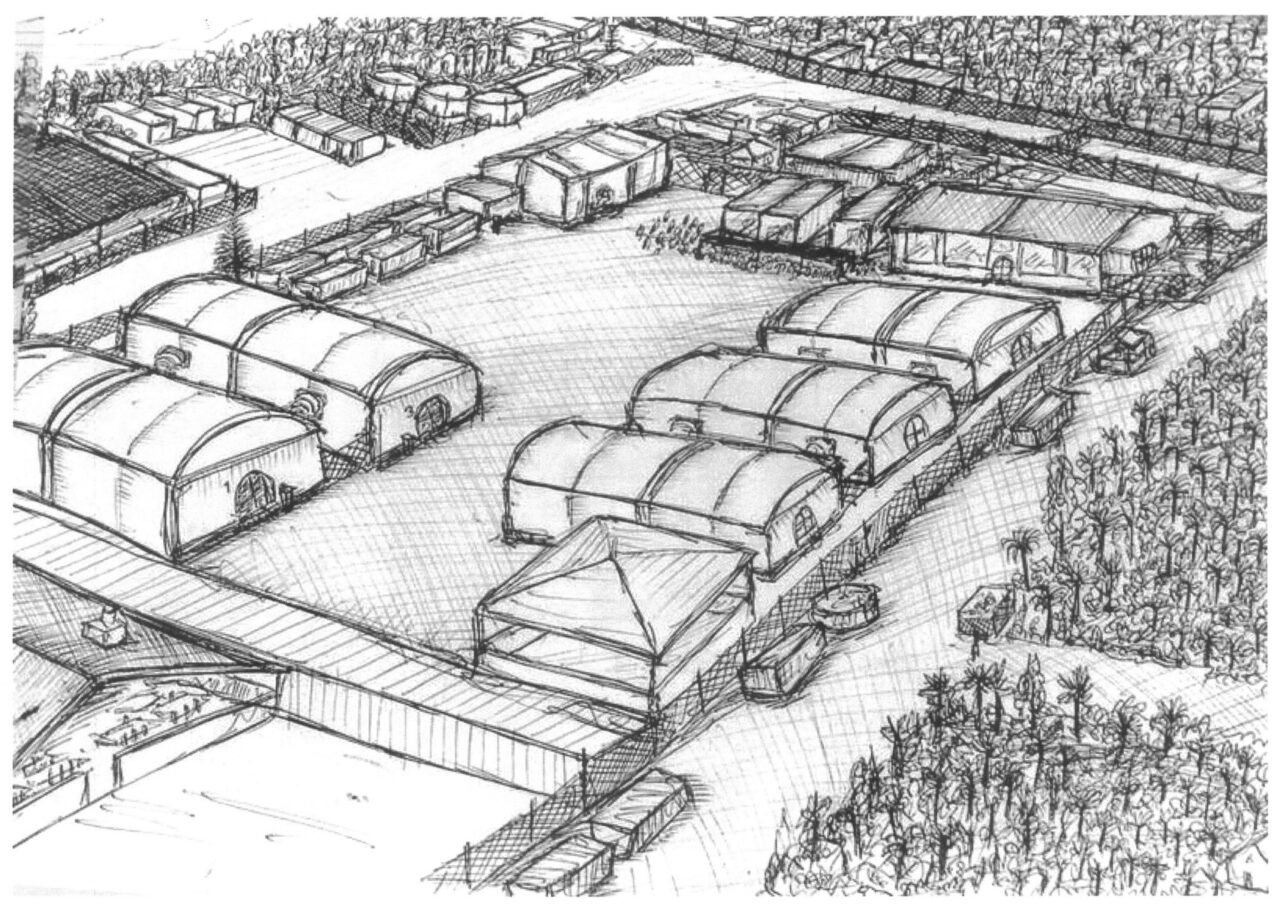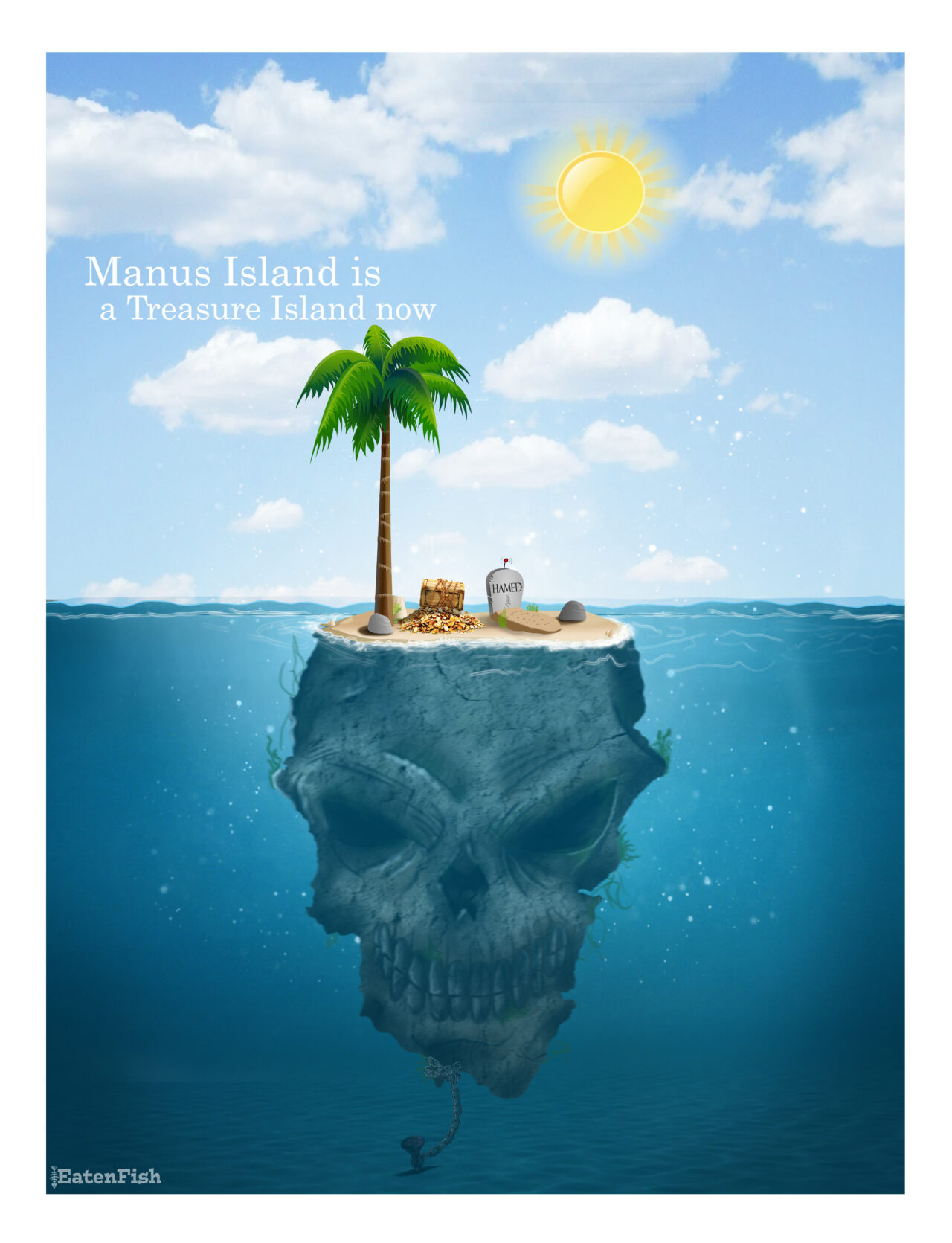âFinding Freedomâ Reveals Human Cost of Immigration Policy

(Poster courtesy Silo Entertainment)
Posted on | Updated
Writer and director Alan Goldman aims to humanize the stories of four asylum seekers detained for years by the Australian government.
A new documentary written and directed by Âé¶ṗÊÓÆṁ industry liaison Alan Goldman (MAA 2011) tells the story of four refugees who spent years in remote offshore detention camps run by the Australian government.
Finding Freedom was mainly shot by the asylum seekers themselves following their release from bare-bones lockups on tiny islands in the Pacific Ocean.
âAs a filmmaker, I feel a responsibility to raise awareness of the human rights violations happening under the radar,â Alan says. âTo push audiences to question their beliefs and ask âis this how a civil society behaves?ââ
The Telus Original Documentary premieres Tuesday, Feb. 14, on Telus Optik channel 8 and Mar. 3 on streaming service WaterBear. Finding Freedom includes interviews shot by Âé¶ṗÊÓÆṁ research technician Sean Arden and animations by artist Jocelyn Geo Tang (BMA 2021). The Silo Entertainment production was produced and executive produced by Mel D'Souza.
The idea for the project came years ago while Alan was visiting Australia for work on another film. He heard from locals about the offshore detention camps â an issue that international media had largely ignored. He was âhorrifiedâ by what he heard.
âIt just seemed so unbelievably barbaric. I couldnât believe what I was hearing,â Alan tells me. âAnd I felt like I was very naive. I simply hadnât thought this kind of thing was actually going on.â

A drawing of the Manus Island detention camp by former detainee Ali Dorani. (Image courtesy Silo Entertainment)
The camps were a species of offshore prison â part of an Australian policy to warehouse people who attempted to make unsanctioned landfall by boat. As he dug deeper, Alan discovered the widespread use of such detention camps.
In the film, Guardian foreign affairs correspondent Ben Doherty calls the current era the âage of displacement.â In recent decades, more people have been forced to leave their homes than ever before in human history, he says.
But Alan felt it would be a mistake to focus purely on statistics. With help from organizations in Australia and abroad, he connected with four former detainees. Amir Taghinia, Ali Dorani and Negar Rezvani were each given a phone, a lighting kit and sound gear. They recorded their lives as they began resettlement in Canada, the U.S. and Norway.
A fourth subject, âAmin,â appeared in an interview but requested anonymity due to ongoing fears for his safety.
âI was really interested in personalizing their stories. I wanted them to have agency in how those stories were told,â Alan says. He hoped doing so would make people âless comfortableâ with the policies used by rich western countries to keep asylum-seekers from entering.
Amir, Ali and Amin each spent years on Manus Island, a remote landmass off the coast of Papua New Guinea. Aminâs detention was nearly double that of the others, having spent 3,285 days in the camp. Negar spent 2,737 days in detention on Nauru, a tiny island nation where women, children and families were sent.
Each of the filmâs subjects is now working to rebuild their lives in their adopted countries. Private sponsorship programs such as were key to making that possible. But the effects of detainment are not so easily left behind, Alan says. Amir, Ali, Negar and Amin each struggle with the impacts of lasting trauma. Healing from that trauma will be the fight of their lives.
âThere is no âthem and us,ââ Alan says. âTheyâre human beings. People need to know that whatever you think about immigration policy, this is what happens to a human being.â

A political cartoon by former Manus Island detainee Ali Dorani, who uses the pen name EatenFish. (Image courtesy Silo Entertainment)
Nor are the stories in Finding Freedom solely playing out overseas. The same policies affect people worldwide, including in our own country.
Canada has a migrant detainee population of roughly 9,000, including 100 infants and children, according to Efrat Arbel, associate professor at UBCâs Peter A. Allard School of Law. Ketty Nivyabandi, secretary general of Amnesty Canada, says no time limits exist for such detentions.
Until recently, detainees were often held in correctional facilities in British Columbia and across Canada. Both Amnesty and Human Rights Watch have campaigned successfully to change this policy. Quebec and Ontario, however, have yet to put an end to the practice.
âWe should reexamine these policies and ask ourselves, is this okay? Are we okay with this?â Alan asks. âIâm not okay with it.â
--
Learn more about Research at Emily Carr University now at ecuad.ca.